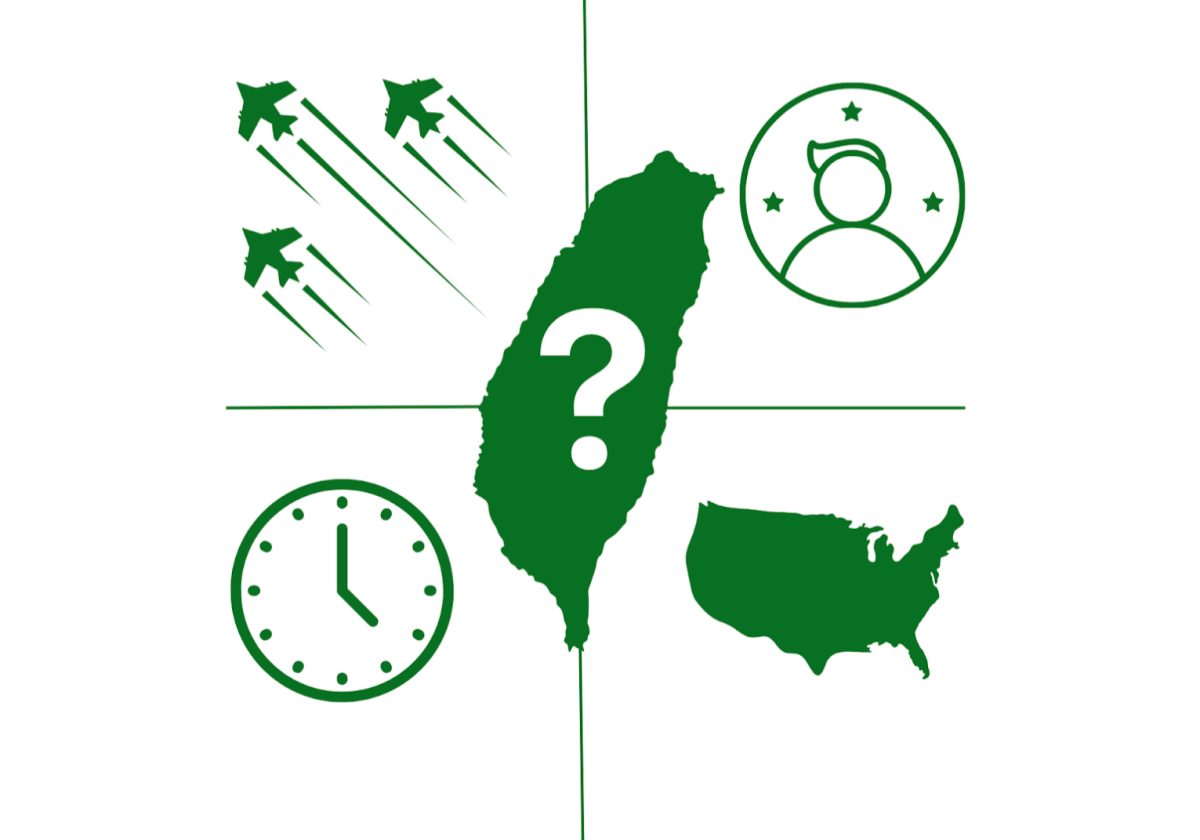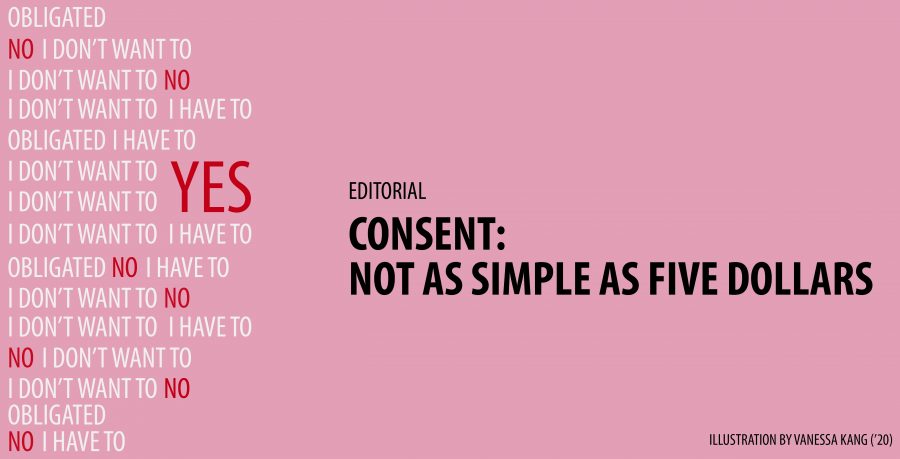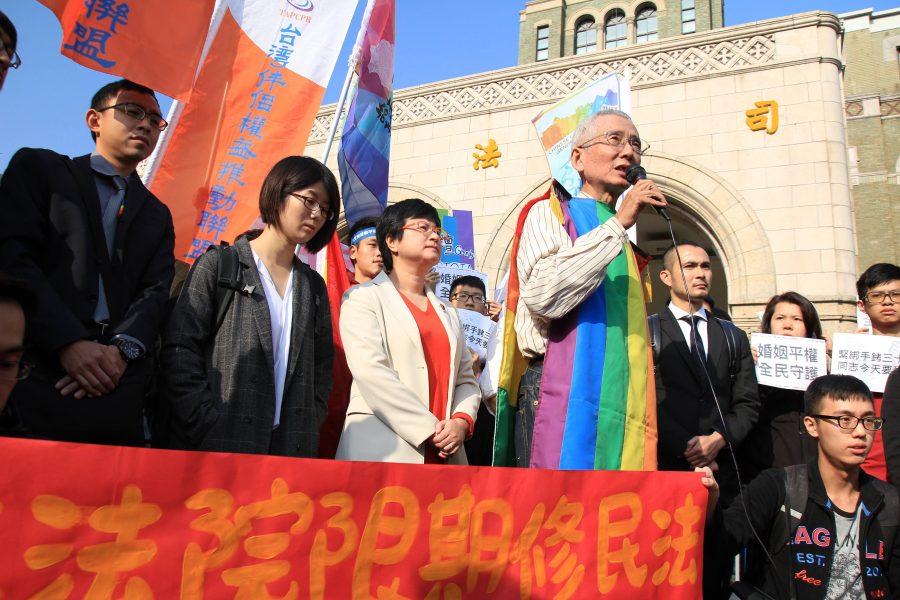When Former United States (US) President Donald Trump won Pennsylvania in November, securing his victory in the 2024 presidential election, the entire world held its breath. While some were overcome with relief and excitement, others trudged home in disappointment, confusion and fear. For most of us here at Taipei American School (TAS), the latter is a more accurate description of our thoughts and feelings that day.
Known for his combative, ultra-nationalistic rhetoric, impulsive Twitter rants and glowing orange skin, Trump has been a rather unconventional figure in American politics. Throughout the course of his campaign, he has vowed to end trade deficits with foreign countries, revive American manufacturing, reduce inflation, restrict abortion access and terminate illegal immigration through mass deportation efforts and the construction of a border wall. But, with cross-strait relations being one of the most pressing topics in foreign diplomacy today, the question remains: what will a Trump presidency mean for Taiwan?
Although Trump has not disclosed any specific policy plans towards Taiwan, we can take a look back at his presidency to better understand his intentions and ideas. Trump approved a $1.4 billion arms sale to Taiwan that included advanced missiles in 2017, supplied an arms package worth $330 million in 2018 and facilitated similar provisions in 2019 and 2020. Additionally, in 2018, his administration spent $250 million on a new complex for the American Institute of Taiwan (AIT), which is Taiwan’s de-facto American embassy.
But, despite his apparent support for the US’s provision of military assistance to the island, Trump told Bloomberg Businessweek in June of 2024, “I think Taiwan should pay us for defense. You know, [the US is] no different than an insurance company. Taiwan doesn’t give us anything.” Although it’s not completely clear what Trump is proposing in this statement, his analogy implies that, like an insurance policy, Taiwan should be paying premiums for American protection, rather than solely relying on the US to cover defense costs – a sentiment that aligns with Trump’s firm “America First” stance. Additionally, in October of 2024, Trump told the Wall Street Journal that he “wouldn’t have to” use the US military to defend Taiwan because Chinese leader Xi Jinping “respects” him. Trump didn’t acknowledge the fact that Xi called China’s unification with Taiwan an “irreversible trend” just days before, or the fact that several US officials believe Xi has ordered the Chinese military to seize the island by 2027.
Yet, defense support is not the only subject Trump has spoken about in relation to Taiwan. During his appearance on the well-known conservative podcast “The Joe Rogan Experience,” Trump called the CHIPS Act – a bipartisan piece of legislation that President Joe Biden signed in 2022 to bring semiconductor manufacturing back to the US – “so bad.” Instead, Trump proposes the imposition of tariffs on Taiwanese semiconductors to force chip builders to construct manufacturing plants in the US. But this measure may simply compel chip builders to move the increased costs down to consumers, which would result in revenue losses for American and Taiwanese businesses and cause a ripple effect of inflation across the technology industry. Trump hasn’t clarified how much he’ll tax Taiwanese goods specifically, but he’s stated that he plans to impose a 60% tariff on Chinese goods and a 10-20% tariff on all other imported goods.
With the uncertainty surrounding Trump’s plans for Taiwan growing everyday, foreign affairs experts are already advising Taiwanese politicians on how to engage with Trump and his administration. At a forum held in early November, former legislator and senior fellow at the Institute for National Policy Research Lo Chih-cheng said that Trump’s “America First” policy will prioritize US national interests to an extreme extent without considering factors like shared values and relationships with traditional allies. As such, National Tsing Hua University associate sociology professor Chen Ming-chi said that “[Taiwan should] align itself with [Trump’s] narrative”, and suggested that Taiwan maintain “a very humble stance” when engaging with the new president. Politicians are already starting to follow through with her suggestions.
It’s completely understandable if you feel afraid and uncertain about how the next four years will play out. But Trump has yet to express any radical pro-China sentiment, he has a track record of being generally supportive of American defensive assistance for Taiwan and Taiwanese politicians/foreign affairs experts are already taking measures to ensure that Taiwan’s relations with the US remain amicable and productive.
Truthfully, we have no idea what our lives will look like by 2028 either. But – although the idea of having a criminally convicted president who thinks immigrants eat cats and dogs for lunch is slightly terrifying – we do know one thing for certain: everything will be okay.


![[PHOEBE CHEN/THE BLUE & GOLD]](https://blueandgoldonline.org/wp-content/uploads/2019/12/senioritis-900x600.jpg)
![[CHARLOTTE LEE/THE BLUE & GOLD]](https://blueandgoldonline.org/wp-content/uploads/2019/10/hongkong2-900x597.jpg)





